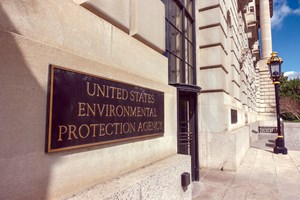EPA launches initiative to combat PFAS in drinking water systems in disadvantaged communities
The U.S. Environmental Protection Agency (EPA) has launched a new initiative aimed at reducing exposure to PFAS (perfluoroalkyl and polyfluoroalkyl substances) and other emerging contaminants in small and disadvantaged communities.
The initiative, part of the EPA's Water Technical Assistance (WaterTA) program, will provide no-cost technical assistance to help public drinking-water systems in 200 communities over the next three years.
The “Tackling Emerging Contaminants” program will support communities by conducting initial water quality testing, evaluating contamination issues, and offering guidance on next steps. The EPA also plans to share best practices and successes through case studies, webinars, and other resources to help address PFAS and similar contaminants.
“The Bipartisan Infrastructure Law is providing a focused opportunity to help small and disadvantaged communities address PFAS and emerging contaminants to ensure that drinking water is clean and safe for residents,” said Bruno Pigott, EPA Principal Deputy Assistant Administrator for Water. “By working hand-in-hand with local partners, the Tackling Emerging Contaminants initiative will help ensure that historically underserved areas have access to safer drinking water that is essential for healthy and vibrant communities.”
As part of President Biden’s Bipartisan Infrastructure Law, $50 billion has been allocated for improving water infrastructure nationwide, including $5 billion dedicated to addressing emerging contaminants in small and disadvantaged communities. The EPA's initiative is designed to help communities identify water challenges, build local capacity, and navigate federal funding opportunities.
The program also offers diagnostic sampling, source water assessments, and training in water treatment and operational strategies, focusing on PFAS contamination and community engagement.
In April 2024, the EPA issued new regulations aimed at reducing PFAS contamination in drinking water. Known as "forever chemicals," PFAS have been linked to various health issues, including cancers and liver damage.
Related News
From Archive

- Glenfarne Alaska LNG targets late-2026 construction start for 807-mile pipeline project
- U.S. water reuse boom to fuel $47 billion in infrastructure spending through 2035
- $2.3 billion approved to construct 236-mile Texas-to-Gulf gas pipeline
- Major water pipe break in Puerto Rico hits over 165,000 customers
- Potomac River Tunnel project enters construction phase beneath Washington, D.C.
- Pennsylvania American Water launches interactive map to identify, replace lead water service lines
- Trump's tariffs drive $33 million cost increase for Cincinnati sewer project
- Utah city launches historic $70 million tunnel project using box jacking under active rail line
- Tulsa residents warned after sewer lines damaged by boring work
- Fatal trench collapse halts sewer construction in Massachusetts; two workers hospitalized




Comments